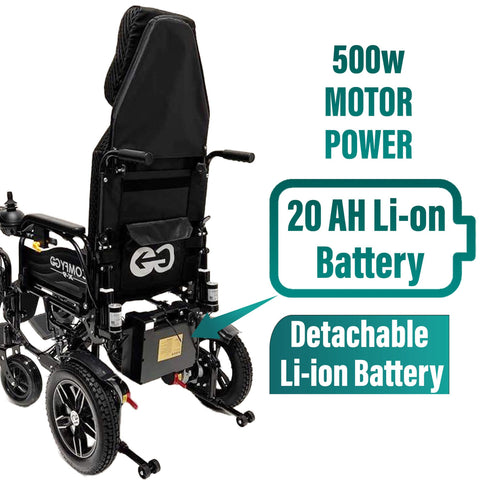Electric Wheelchairs: Battery Types and Charging Time
Battery Types Used in Electric Wheelchairs:
Electric wheelchairs are crucial mobility aids for individuals with limited mobility, and their performance heavily relies on the type of battery used. There are two main types of batteries commonly used in electric wheelchairs: lead-acid (gel) batteries and lithium-ion batteries.
-
Lead-Acid (Gel) Batteries: Traditionally used in electric wheelchairs, these batteries are known for their durability and cost-effectiveness. However, they are disadvantaged by their weight and bulkiness, and they may have a shorter lifespan compared to other battery types.
-
Lithium-Ion Batteries: Lithium-ion batteries have gained popularity in recent years due to their lightweight nature, high energy density, and extended lifespan. They offer faster charging times and longer ranges compared to lead-acid batteries, although they may come with a higher initial cost.
Charging Time for Batteries with Equal Capacity:
The charging time of batteries used in electric wheelchairs varies depending on factors such as battery type, capacity, and charging method. Generally, assuming two batteries with equal capacity:
-
Lead-Acid (Gel) Batteries: Lead-acid batteries typically have longer charging times compared to lithium-ion batteries. With a standard charger, lead-acid batteries may take approximately 8 to 10 hours to reach a full charge.
-
Lithium-Ion Batteries: Lithium-ion batteries generally have shorter charging times compared to lead-acid batteries. Using a compatible charger, lithium-ion batteries can be fully charged in around 4 to 6 hours.
Factors Affecting Charging Time:
Several factors influence the charging time of electric wheelchair batteries, including:
-
Battery Capacity: Batteries with higher capacities may take longer to charge compared to batteries with lower capacities.
-
Charging Method: The type of charger used can impact charging time. Fast chargers or rapid charging systems may significantly reduce charging time compared to standard chargers.
-
State of Charge: The current state of charge of the battery affects charging time. Batteries that are deeply discharged may require more time to reach a full charge compared to partially charged batteries.
-
Temperature: Ambient temperature affects charging efficiency. Extreme temperatures can slow down the charging process and affect battery performance.
-
Charger Efficiency: The efficiency of the charger, including voltage and current output, can impact charging time. High-quality chargers designed for electric wheelchair batteries offer faster and more efficient charging.
Conclusion:
The battery type and charging time are critical considerations when choosing an electric wheelchair. Lithium-ion batteries offer faster charging times and longer ranges, making them preferred for users seeking convenience and efficiency in recharging their mobility devices. However, both battery types provide options to meet the needs of users with different mobility requirements.
















